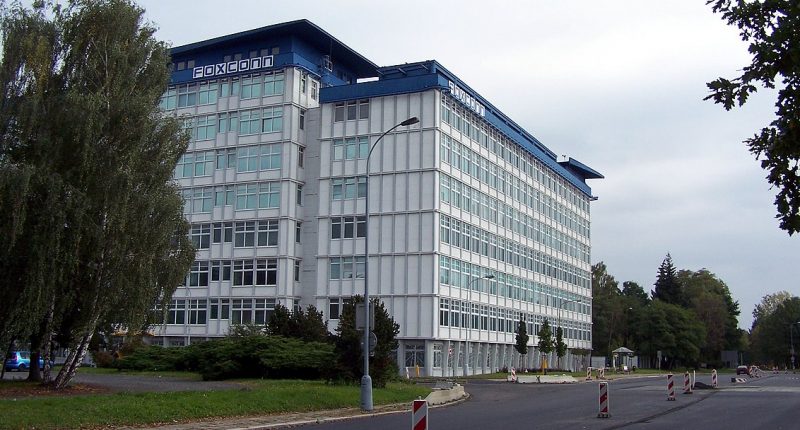Foxconn — the world’s largest contract electronics manufacturer — reported a nearly 16% jump in revenue for the second quarter (Q2) of 2025. The company recorded NT$1.797 trillion (~ $57 billion) in revenue from April to June, up 15.82% compared to the same period last year (2024). Importantly, this result surpassed market expectations and marked a strong recovery from the previous quarter’s decline.
The growth was largely driven by high demand for artificial intelligence (AI) hardware, particularly in its cloud and networking division. This segment, which supplies servers and equipment for major tech companies including Nvidia, performed strongly as businesses around the world continue investing in AI infrastructure.
On the other hand, the company’s smart consumer electronics segment, which includes the assembly of Apple iPhones, showed flat growth compared to last year. The company attributed this to currency fluctuations that affected sales figures, even though product demand remained steady. However, despite this, June alone was a record-breaking month, with the company reporting NT$540.2 billion in revenue (a 10.09% year-on-year increase), making it the highest June revenue in Foxconn’s history.
But while Foxconn’s stock went up 76% in 2024 (due to excitement over AI development and related investments), it has not done as well this year. In 2025, the stock has fallen about 12.5% so far. Investors are more cautious now. They are said to be worried about possible US tariffs and a slowdown in the tech industry. Notably, the manufacturing giant will release its full earnings report (including profit figures and a detailed financial breakdown) on August 14. That report will give investors a clearer view of Foxconn’s margins and performance across different product lines.
In the meantime, the company expects its revenue to grow further in the third quarter (Q3), both compared to the previous quarter and the same period last year. The company believes demand for AI-related products will continue to rise, and it is preparing for strong orders in the second half of the year.
However, at the same time, Foxconn also warned of risks from global economic uncertainty, including geopolitical tensions and unstable currency markets, which could impact future performance. Some early signs of these concerns are already starting to appear. For example, Foxconn has reportedly begun sending back a large number of its Chinese employees who were working at its iPhone manufacturing plants in India. Most of these workers were engineers and technicians. This comes as China is believed to be tightening control over the outflow of advanced manufacturing knowledge, skilled labour, and sensitive equipment. The development is significant since India is a key growth market for Foxconn, where it is also set to start manufacturing iPhone casings for the first time.
The Tech Portal is published by Blue Box Media Private Limited. Our investors have no influence over our reporting. Read our full Ownership and Funding Disclosure →






